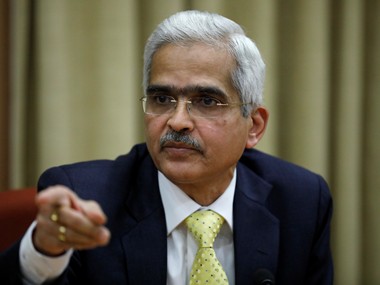
Mumbai: The Reserve Bank of India (RBI) cut its policy interest rate by 25 basis points in a widely expected move on Thursday, while also changing its monetary policy stance to “accommodative” after the economy grew at its slowest in over four years.
The six-member monetary policy committee (MPC) cut the repo rate to 5.75 percent as predicted by 44 of 66 analysts polled by Reuters last week. The reverse repo rate was reduced to 5.50 percent.
All six of the MPC members voted for 25 basis points cut, and for the policy stance to be changed to “accommodative” from “neutral”.
“A sharp slowdown in investment activity along with a continuing moderation in private consumption growth is a matter of concern,” the MPC said in its statement.
The latest reduction is the third since February, as the RBI has cut rates by a similar amount at both of the last two meetings of the MPC.
Markets reacted to the rate cut and change in stance as the 10-year benchmark bond yield fell to 6.89 percent from 7 percent before the policy announcement, while the rupee strengthened to 69.28 per dollar from 69.36 earlier.

File image of RBI governor Shaktikanta Das. Reuters.
The RBI lowered its growth forecast to 7 percent from the April view of 7.2 percent for the 2019/20 April-March fiscal year.
“Going by the macro undercurrents, the rate-cutting cycle will continue in the coming quarters as well,” said Rupa Rege Nitsure, chief economist at L&T Financial, following the MPC’s decision. “Today’s policy actions … give a clear signal that the RBI will continue with easy monetary conditions until it sees a definite improvement in growth-inflation mix.”
Asia’s third-largest economy grew at a much slower-than-expected 5.8% annually in the January-March quarter, according to official data released on Friday.
Far quicker growth is needed to generate jobs for the millions of young Indians entering the labor market each month, posing the greatest economic challenge to Prime Minister Narendra Modi, as he begins his second term in office.
The new Finance Minister Nirmala Sitharaman could propose tax cuts to boost demand when she presents her maiden budget following her switch from the defense ministry. Modi is also expected to launch major economic reforms, having secured a second term with a landslide election victory last month.
Modi’s new government has set up two cabinet committees to find ways to spur job creation and investment, it said on Thursday after data showed a leap in unemployment and sharp fall in economic growth.
The RBI marginally raised its retail inflation outlook for the first half of fiscal 2019-20 to a range of 3 percent to 3.1 percent from a range of 2.9 percent to 3 percent that it had outlined in April. It slightly trimmed its inflation outlook for the back half of the year however, to 3.4 percent to 3.7 percent from its earlier projection of 3.5 percent to 3.8 percent.
“The headline inflation trajectory remains below the target mandated to the MPC even after taking into account the expected transmission of the past two policy rate cuts,” the MPC said.
Your guide to the latest cricket World Cup stories, analysis, reports, opinions, live updates and scores onhttps://www.firstpost.com/firstcricket/series/icc-cricket-world-cup-2019.html. Follow us on Twitter andInstagram or like our Facebook page for updates throughout the ongoing event in England and Wales.
[“source=firstpost”]
